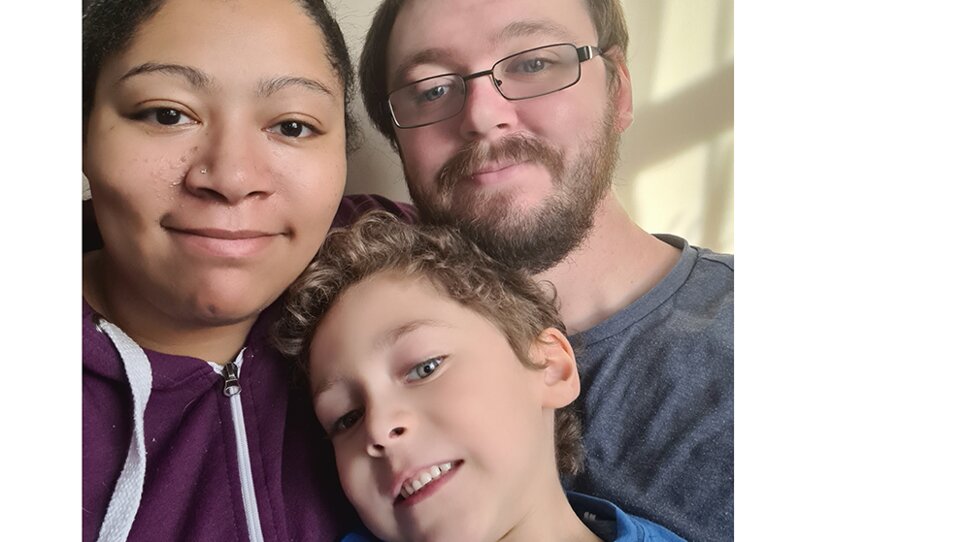Christmas tips for autistic people and their families
Christmas can be an exciting and fun time. But new activity can be overwhelming for some of us, particularly this year when we’re also dealing with the impact of coronavirus. We might have to adapt some of our usual plans but that shouldn't stand in the way of an autism-friendly Christmas.
With your help, we’ve compiled a list of tips for the festive period. With good planning and clear communication, we hope these will help you have an enjoyable Christmas.
Key to preparing for a successful Christmas is to plan and share what is important for you with those you are spending Christmas with.
Preparing 

Many autistic people can find any kind of change difficult. Planning and preparation is key in making Christmas as enjoyable as possible.
- Think about ways you can enjoy the festive season that work for you – don’t feel pressured into doing things just because that’s what other people do.
- Wherever possible, plan your Christmas in advance with your family, friends and any support services. This is all the more important because of the Christmas coronavirus rules.
- Ensure all plans are shared and you know what you will be doing and when, and who else will be there.
- If it is helpful, use visual aids such as calendars, lists and schedules to help plan your Christmas.
- Think about and plan around sensory differences that could cause you distress or discomfort, consider ear defenders etc for times of potential sensory overload.
- Create or find a quiet space where you can take a break if you get overwhelmed. You may want this to be a completely Christmas-free area, particularly around the main days of Christmas or at key times that there may be additional stress.
- Don’t just plan for Christmas Day, plan for the whole festive break and give yourself quiet days to recoup if needed.
- Especially this year, don’t spend money you don’t have on Christmas gifts you can’t afford. Make sure you budget for buying Christmas gifts.
- If you’re visiting family and friends, tell them about anything that could help make your visit be as stress-free as possible. For instance, turning off Christmas lights, letting you know in advance what the food will be, sharing plans for activities and having a quiet space to escape to.
- This year, many people are planning to meet up 'virtually' using online channels, such as Zoom. It might work well for you. You can decide whether you want to join in from your own phone, tablet or laptop. You can also decide how you join - for example, whether to have your camera and microphone on or off. Equally, if virtual meet ups are not your thing, don't feel pressured to take part.
"Christmas scents and candles can be super overwhelming sensory-wise so could be avoided when decorating. Flashing fairy lights can be overwhelming."
Schedules 

Many autistic people have a strong need for routine. If schedule and routine is important to you, you might want to:
- Keep your daily schedule the same as possible, including on Christmas Day.
- Gradually introduce Christmas activities into your daily schedule. For instance, you could put up a few decorations on one day and more on another, plan a short Christmas shopping trip or decorate the tree, then switch on the tree lights on another day.
- Keep a copy of your schedule with you. Share it with other people if that would help them understand what you need to do and, if anything changes, change it on your schedule so you’ve got a new plan.
Decorations 

Many autistic people will have differing sensory needs; decorations for some are great whereas others may struggle and find them really overwhelming. You could:
- Plan the most suitable decorations for you and your home, including where best to have them and how many, if any.
- Consider decorating gradually, for example, you could put the Christmas tree in position, decorate it the next day, then put up other decorations even later.
- Create Christmas-free areas of the home without decorations.
"I put my cards up and treasure those for the kind thoughts behind them, but otherwise have no other decorations."

Presents 

Presents can also be overwhelming: the number of them, the wrapping and unwrapping them; the unclear expectations about how to respond after receiving a present. You could try telling family and friends what your preference is in advance, including:
- The number of presents – make a list of presents you would like to receive and share this with your family and friends. This also removes any element of surprise, if you find that difficult.
- Explaining whether you want presents to be wrapped or not.
"Last year my son chose his own main present, and checked it was right when it arrived, then it was wrapped. He felt better knowing his present was right, and it wouldn’t be a surprise, so started the day calm."












